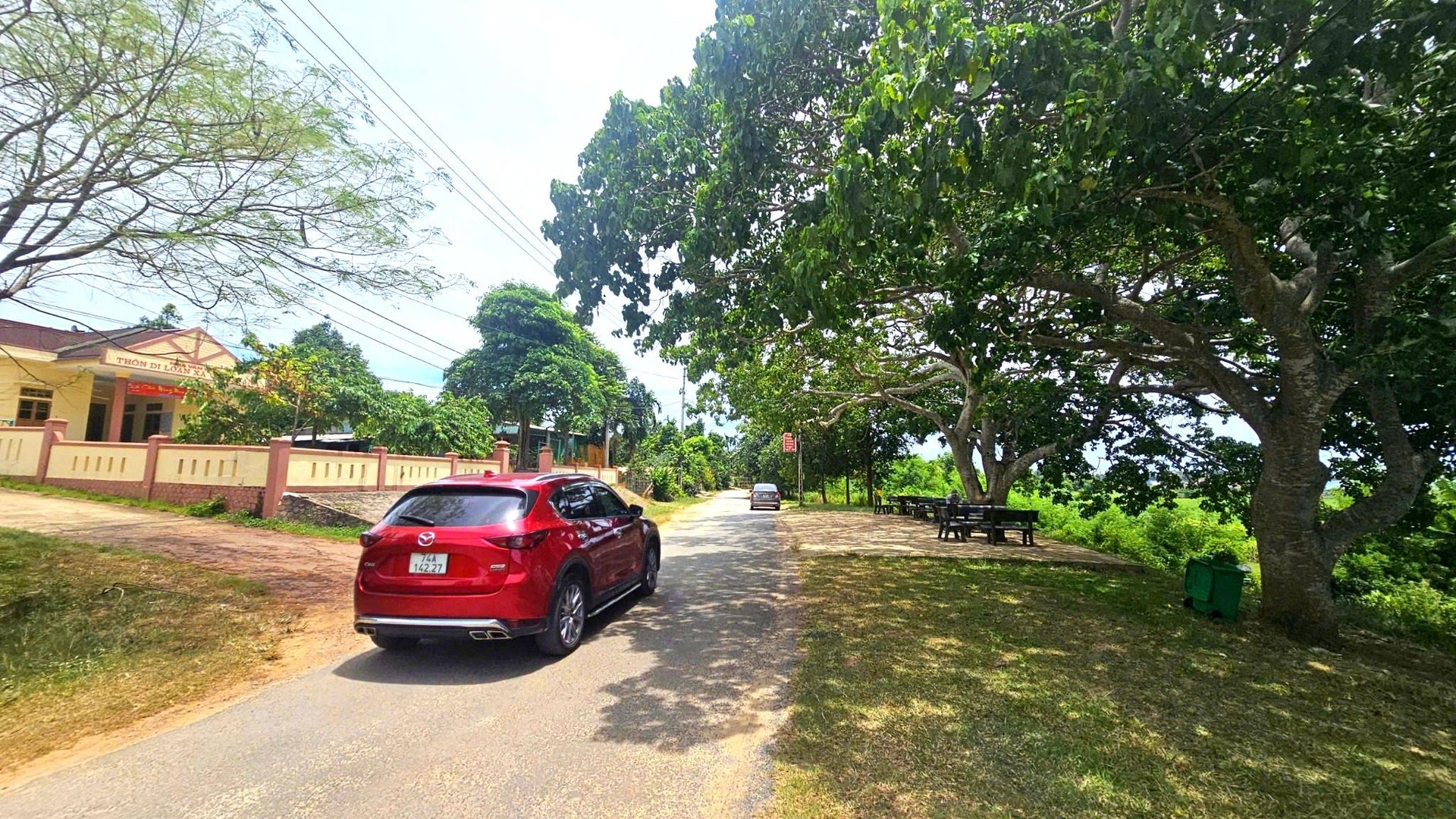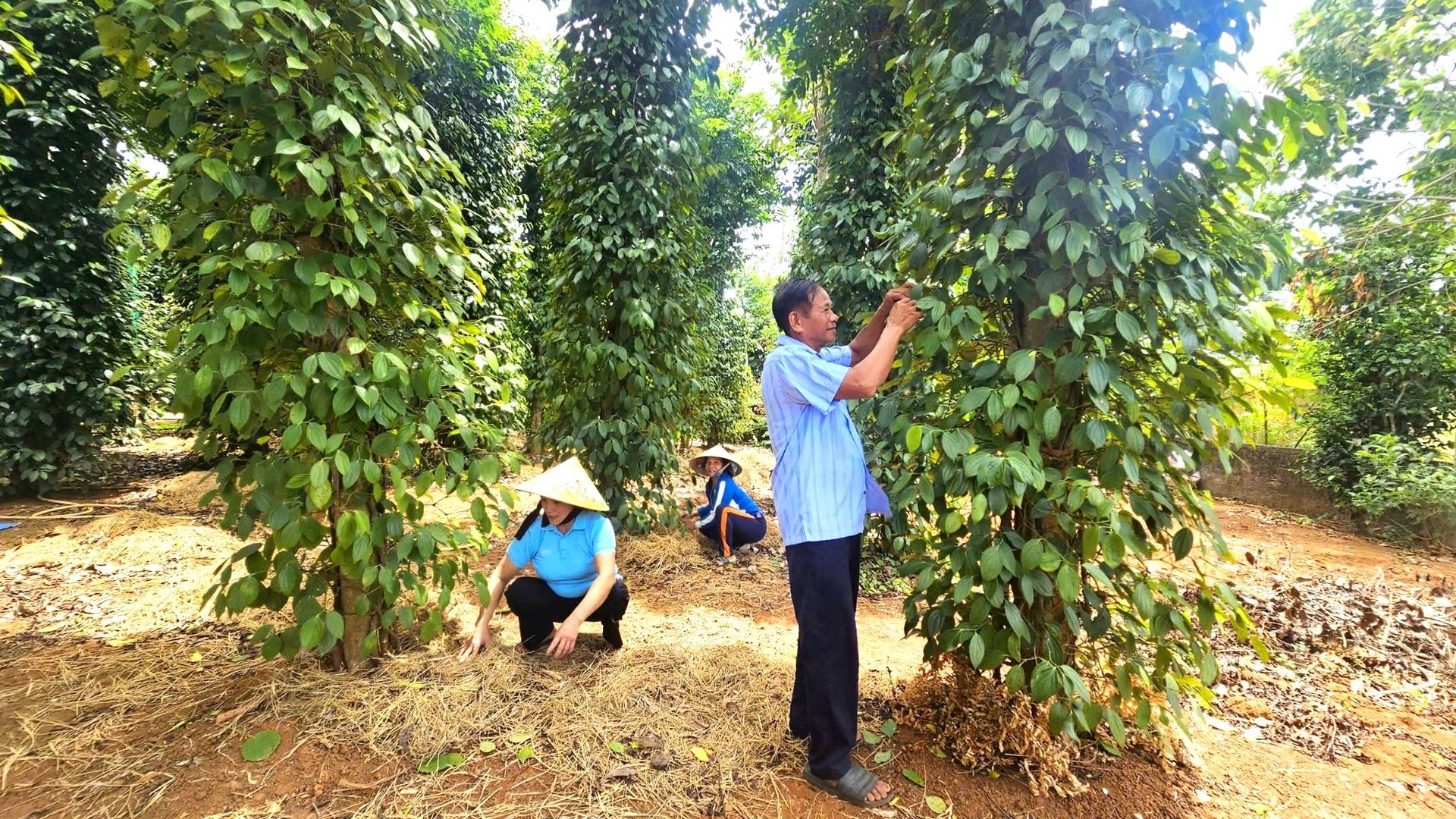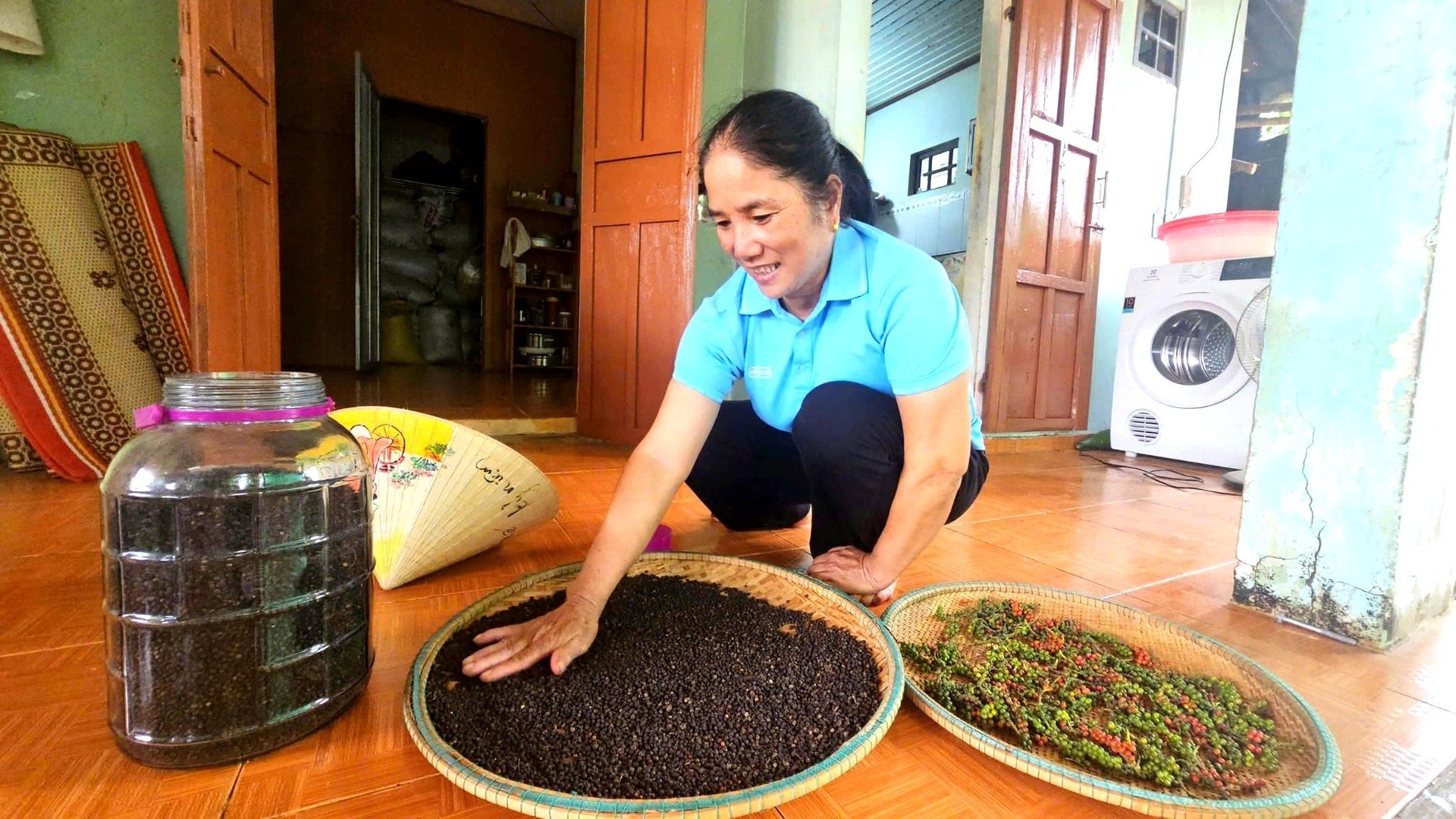November 21, 2025 | 05:24 GMT +7
November 21, 2025 | 05:24 GMT +7
Hotline: 0913.378.918
November 21, 2025 | 05:24 GMT +7
Hotline: 0913.378.918

A tree-lined road through the Vinh Giang countryside. Photo: T. Duc.
A visit to the hamlets of Tan My, Tan An, Hamlet 1, Hamlet 2, Di Loan, and Co My in Cua Tung commune offers a sense of peace. Paved roads connect residential areas, leading to orderly, healthy pepper gardens where broad leaves sway in the cool breeze. Most households in these hamlets have pepper gardens, ranging from a few dozen to several hundred plants. Families with at least a few sao of land participate in one of three agricultural cooperatives: Tan My, Co My, or Di Loan.
The Tan My Agricultural Cooperative has the most members, with operations spanning four hamlets (Hamlet 1, Hamlet 2, Tan An, and Tan My). The cooperative’s total pepper-growing area is over 50 hectares. According to Ngo Van Luong, the cooperative’s director, pepper is a local specialty. "After the country was reunified, people focused on filling bomb craters and trenches to create gardens, increase production, and bring green back to this land of fire", he said.
Luong shared the history of pepper cultivation, noting that pepper from the Vinh Linh region has long been famous. In the last 15 years, locals have focused on developing larger-scale gardens and intensified cultivation for higher yields and quality. "However, there was a difficult period. When the pepper plants were hit by a widespread root rot, entire gardens died, and low prices caused the growing area to shrink. The cooperative's pepper area was cut in half", he recalled.
In recent years, pepper prices have stabilized at a high level, prompting farmers to rebuild their gardens. For example, the Tan My Agricultural Cooperative has 300 members and over 50 hectares of pepper, while the Co My and Di Loan cooperatives have 240 and 140 members, respectively, each with 35 hectares. Luong noted, "Farmers have applied technology and scientific techniques to cultivation and care, so the plants are less prone to disease, healthier, and have superior yields. Every garden has adopted VietGAP standards, with organic-oriented production to achieve clean products, a green agriculture, and the highest standards. Vinh Giang pepper has contributed to the famous ‘Vinh Linh pepper’ brand".

The healthy, organically cultivated pepper garden of Mr. Tran Canh Luu's family. Photo: T. Duc.
After returning from his military service to a homeland still bearing the scars of war, Tran Canh Luu joined his neighbors in developing the local garden economy. The Vinh Giang region, with its fertile red soil hills, is perfectly suited for pepper plants. He started by planting seedlings around his house for easy care. As the vines grew, he meticulously planned his garden, using straight, well-spaced mọc trees as supports. Thanks to the diligent care of him and his wife, the pepper rows flourished, with clusters of berries peeking out from beneath the dense foliage. From the inter-hamlet road, their home is nestled behind a lush pepper garden, offering a cooling sight on a hot summer afternoon.
As a member of the Di Loan Agricultural Cooperative, Luu attended training sessions on the most effective techniques for caring for and harvesting pepper. The knowledge gained helped him and his neighbors create model gardens with precise spacing between rows and plants, ensuring healthy growth and preventing plants from being too crowded or sparse.
"Before, people often used synthetic phosphorus and nitrogen fertilizers for pepper. But now, all households have switched to organic cultivation", Luu explained. The primary fertilizer source is composted manure, along with organic and microbial fertilizers applied on a regular schedule. Additionally, farmers use rice straw from their harvests to mulch the base of the plants, which helps retain moisture and enriches the soil. Many households have also installed drip irrigation systems to maintain stable soil moisture for the thriving plants.

The dried pepper from the Vinh Giang region is well-known for its rich flavor and spiciness. Photo: T. Duc.
During the most recent harvest, with over 250 pepper plants around his home, Luu’s family harvested more than 400 kg of dried pepper. At the current market price of about USD6.50/kg, they earned roughly USD 2,600. Le Thi Cuc, his wife, brought out a jar of dried pepper from the kitchen and poured the peppercorns into a bamboo tray to inspect them. The strong aroma of pepper filled the room. She commented, "The pepper here has smaller berries but is much spicier and more fragrant. We don't need the money right now, so we'll store it and sell when the price goes up to earn a bit more. The pepper garden provides a steady annual income. It's not a lot, but it’s something we can save".
Ngo Van Luong, Director of the Tan My Agricultural Cooperative, stated: "We are also linking cooperatives to increase the total pepper area and output. This will allow us to create diverse products like ground pepper and freeze-dried pepper under our own brand name and packaging to supply the market. Only then will our pepper region have the opportunity to develop, and our farmers will have a higher, more stable income”.
Nguyen Cong Thanh, Director of the Di Loan Agricultural Cooperative, told us that the cooperative also cultivates rice, raises aquaculture, and grows pepper. "Of these, the pepper gardens are the main source of income for our members. On average, a pepper garden brings in over USD 5,200 per hectare each year. This helps stabilize and develop family economies, improving the lives of all households”.
Translated by Linh Linh

(VAN) The information was shared at the seminar 'Urban Agriculture - Solutions for Developing Green Spaces,' organized by the Kinh te & Do thi Newspaper and the Biotechnology Center of Ho Chi Minh City.
/2025/11/19/4141-2-132831_216.jpg)
(VAN) One of Japfa's outstanding solutions is implementing digital transformation and artificial intelligence (AI) to optimize operations, enhance productivity, and advance sustainable development.
/2025/11/19/4847-1-093540_448.jpg)
(VAN) The Gia Lai Provincial People’s Committee had a working session with the delegation of the U.S. Department of Agriculture, the State of Idaho, and representatives of the State's leading enterprises.

(VAN) Ca Mau has a sufficient foundation to become a strong regional aquaculture center, where production integrates the economy, the environment, and the lives of the people.

(VAN) SEIKI Group envisions itself as a pioneer in the ‘dual transformation’ of digital technology and green industry, standing alongside the Government and Vietnamese businesses in their pursuit of sustainable development.

(VAN) The VNGEONET network affirms Viet Nam's progress in mastering digital space, providing a precise positioning data platform to serve socioeconomic development.
/2025/11/14/3247-1-184556_35.jpg)
(VAN) Thai Nguyen is methodically implementing digital transformation in the livestock sector, laying the foundation for a modern, transparent, and sustainable agriculture.